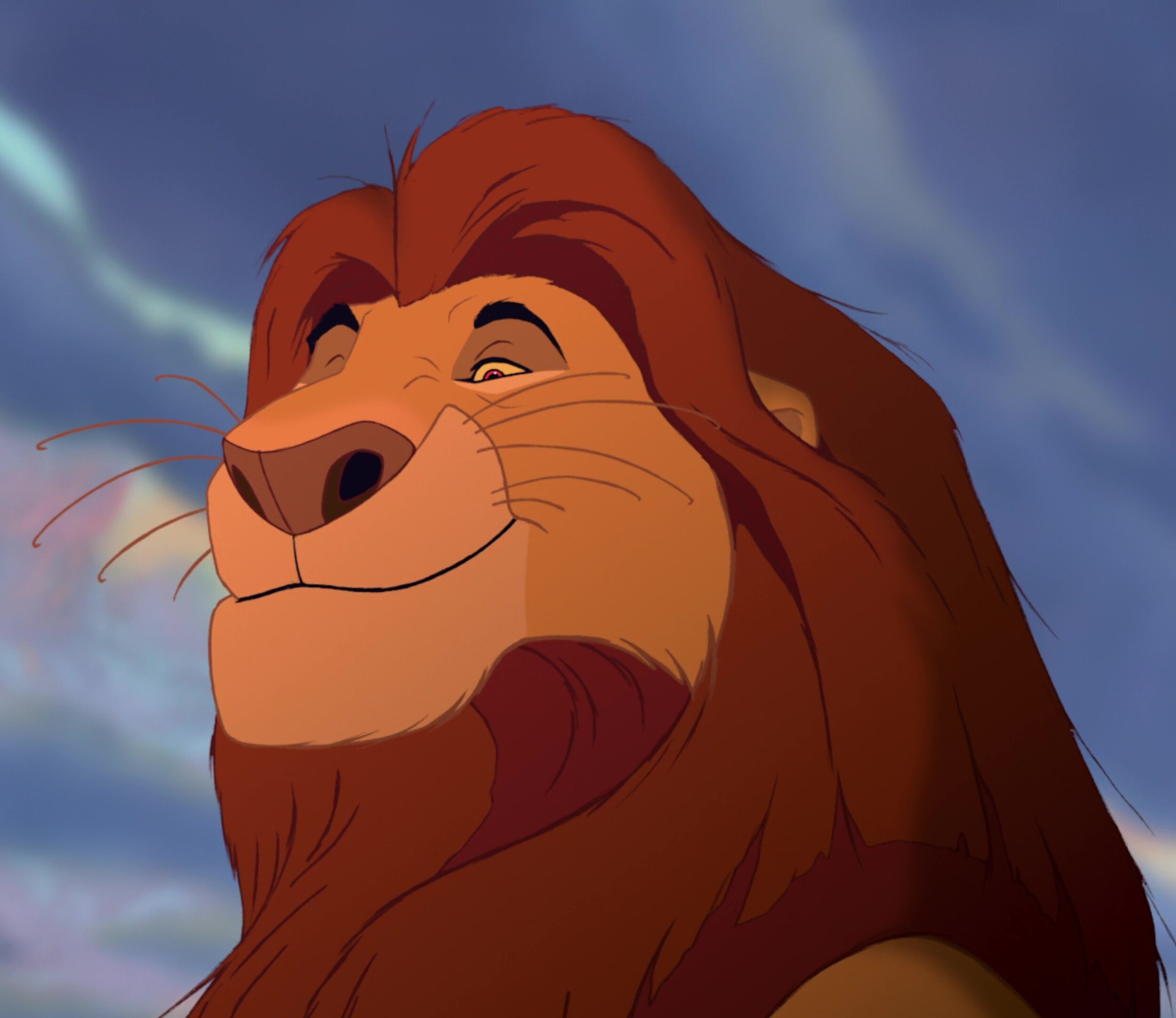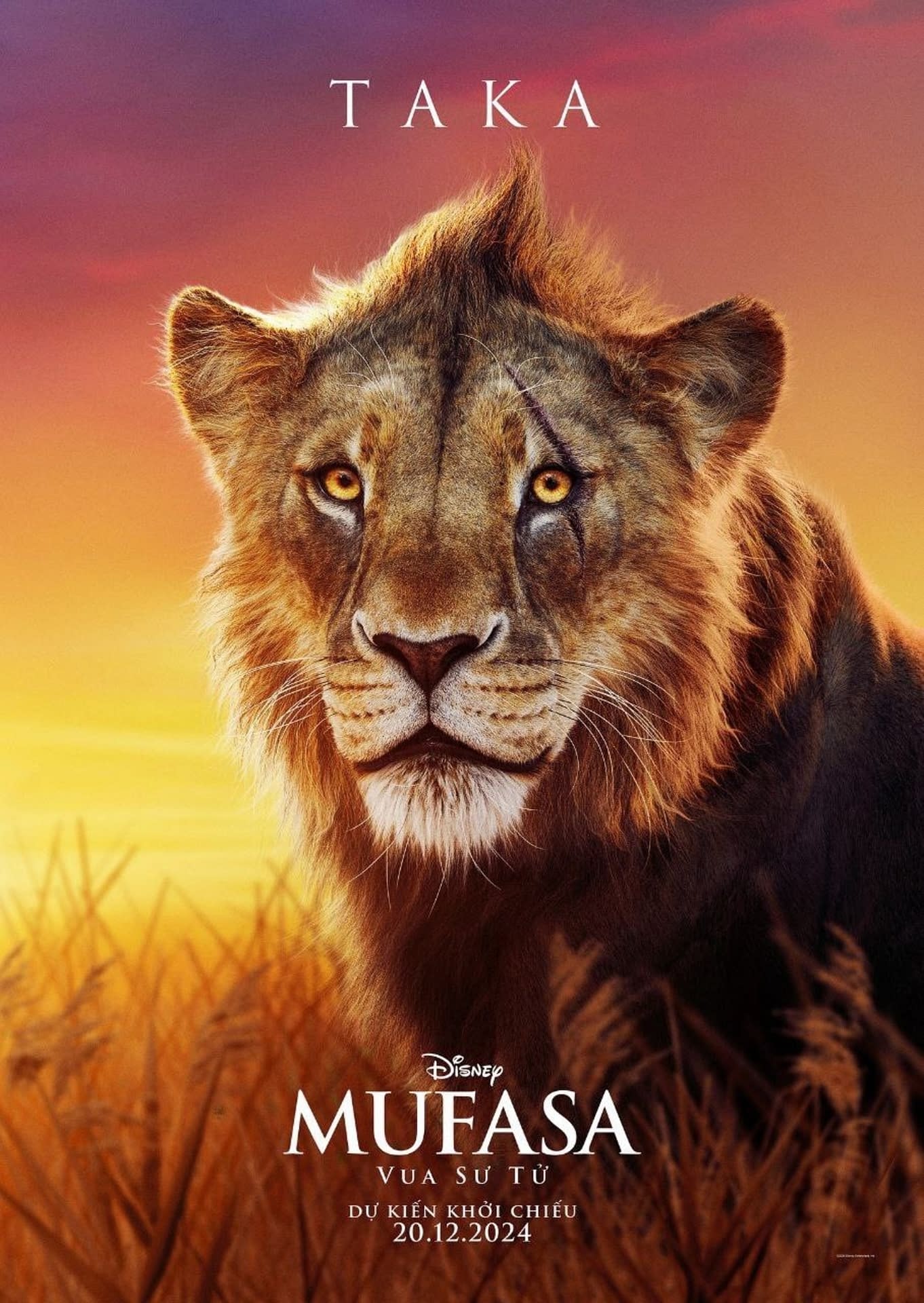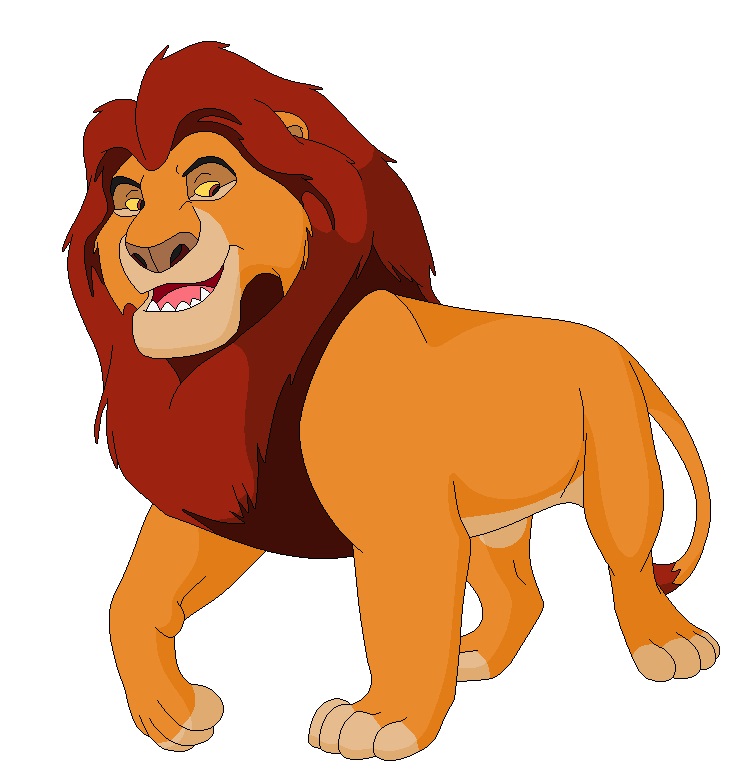Table Of Contents
When you think about the majestic, wise, and kind voice of Mufasa from Disney’s The Lion King, a certain deep resonance probably comes to mind, doesn't it? That sound, that presence, it truly shapes the character in a big way. It’s a voice that carries immense authority, yet also a lot of warmth, making Mufasa one of the most beloved figures in animation history, actually. The person behind that unforgettable sound is, in a way, just as legendary as the king himself.
You might wonder, is it the same person who gave life to Mufasa in both the classic animated film and the more recent live-action version? It’s a good question, and the answer, as it happens, speaks volumes about the enduring impact of a truly special vocal performance. The choice of the voice actor for such an important character, you know, it’s a critical decision that can make or break how audiences connect with a story.
This article will take a closer look at the remarkable individuals who have voiced Mufasa, exploring their contributions and how their talent helped create such a powerful and memorable character. We’ll talk about the original, iconic voice, and then consider the more recent portrayal, too. It’s quite a story, really, about how a voice can become so much a part of who a character is, fundamentally.
- Leaked Scarswonderland
- Agentredgirl
- 2 Babies One Fox
- Morten Harket The Voice Of Aha And His Enduring Legacy
- What Was Lol Superman
- The Original King: James Earl Jones
- Personal Details of James Earl Jones
- The Live-Action Reimagining: A Familiar Roar
- The Impact of Voice Acting on Iconic Characters
- The Enduring Power of Mufasa's Message
- Frequently Asked Questions About Mufasa's Voice Actor
When Disney released "The Lion King" in 1994, the world met Mufasa, the wise and protective ruler of the Pride Lands. The voice that brought him to life was that of James Earl Jones, a man whose vocal cords have, frankly, shaped some of the most memorable characters in film history. His selection for the role was, you know, a stroke of genius, really, because his voice just has this incredible depth and a certain kind of gravitas that few others possess. It’s a voice that commands attention, yet it also conveys a profound sense of love and guidance, which is exactly what Mufasa needed.
Jones's portrayal of Mufasa wasn't just about reading lines; it was about embodying the spirit of a king, a father, and a mentor. He gave Mufasa a presence that filled every scene, even when the character wasn't physically there. This is, in a way, the true art of voice acting – creating a whole personality with just your voice. The way he delivered key lines, for example, "Look, Simba. Everything the light touches is our kingdom," became instantly iconic, and honestly, still sends shivers down your spine.
The choice of James Earl Jones for the original animated Mufasa was, you know, a very deliberate one, too. The filmmakers needed someone whose voice could convey immense power and wisdom, but also a deep, abiding kindness. Jones, with his distinctive bass voice and commanding delivery, was, apparently, the perfect fit. He managed to make Mufasa feel like a genuine, living being, rather than just a drawing on a screen, which is quite something.
- Tess Dinerstein White Horse
- Is Cal Raleigh Married
- Squirrel Girl Summer Skin Glitch
- Iran President Vs Supreme Leader
- Aisah Sofey Leaked
A Voice of Authority and Warmth
What made James Earl Jones's voice so perfect for Mufasa, you might ask? Well, it’s a unique blend of qualities. His voice carries an inherent authority, a weight that suggests wisdom and experience. This makes Mufasa's pronouncements feel like laws of nature, very much so. But beneath that commanding tone, there’s also a profound warmth, a gentleness that speaks to his deep love for his son, Simba, and his people. It's this combination, you know, that makes Mufasa such a relatable and admirable figure.
Consider the scenes where Mufasa teaches Simba about the circle of life, or when he offers comfort and reassurance. Jones’s voice, basically, wraps around those moments, giving them a comforting, almost paternal hug. It’s a voice that you trust, a voice that feels safe, and yet it can also convey serious warnings or profound sadness when the story calls for it. This versatility, frankly, is a hallmark of his incredible talent. It’s not just about the sound, but about the emotion he pours into every single word, which is pretty amazing.
The vocal performance by James Earl Jones set a very high standard for the character. His Mufasa is not just a king; he is a guiding spirit, a moral compass for Simba and for the audience, too. The way he could shift from a booming roar of anger to a soft, encouraging whisper, it just showed the full range of Mufasa’s character, and honestly, Jones’s own skill. His voice, in a way, became the very essence of Mufasa, creating a bond with audiences that has lasted for decades.
Beyond The Lion King: A Storied Career
James Earl Jones's career, as you might know, spans many decades and includes an astonishing array of roles. Before he ever lent his voice to Mufasa, he was already a legend, you know. Perhaps his most famous vocal role, arguably, is that of Darth Vader in the Star Wars saga. The contrast between the menacing, mechanical voice of Vader and the warm, fatherly tones of Mufasa truly showcases his incredible range and adaptability as a voice actor. It’s quite a feat to embody two such vastly different, yet equally iconic, characters.
His work isn't limited to voice roles, either. Jones has a distinguished career on stage and screen, earning numerous awards and accolades. He's performed in classical plays, dramas, and comedies, always bringing a unique presence to his characters. For instance, his work in "The Great White Hope" earned him an Academy Award nomination, and he’s won Tony Awards for his stage performances. This background in live acting, basically, gives him a deep understanding of character and emotion, which he then translates, very effectively, into his voice work.
The fact that he has been such a consistent presence in entertainment for so long speaks volumes about his talent and dedication. His voice is, in some respects, instantly recognizable, a comfort to many, and a source of inspiration for aspiring actors. His contribution to Mufasa is just one jewel in a very impressive crown, and it really highlights how a truly gifted actor can leave an indelible mark on popular culture, which is pretty cool.
Here’s a quick look at some key details about the remarkable actor behind Mufasa’s original voice:
| Full Name | James Earl Jones |
| Born | January 17, 1931 |
| Birthplace | Arkabutla, Mississippi, USA |
| Nationality | American |
| Occupation | Actor (Stage, Film, Voice) |
| Notable Voice Roles | Mufasa (The Lion King), Darth Vader (Star Wars), various narrations |
| Awards & Honors | Tony Awards, Grammy Awards, Emmy Awards, National Medal of Arts, Honorary Academy Award |
When Disney announced the 2019 live-action (or photorealistic CGI, to be precise) remake of "The Lion King," one of the biggest questions on everyone's mind was, naturally, who would voice the characters? For many, the original voices were just too iconic to replace. So, it was, apparently, a huge relief and a moment of great excitement when it was confirmed that James Earl Jones would return as the voice of Mufasa. This decision, honestly, was a brilliant move, as it provided a direct link to the beloved original and offered a sense of continuity that audiences deeply appreciated.
His return wasn't just about nostalgia; it was about recognizing the sheer perfection of his original performance. No other voice could, perhaps, capture the essence of Mufasa quite like his. Bringing him back ensured that the character’s gravitas, his wisdom, and his warmth remained intact, even in a visually different film. It’s almost as if, you know, his voice is as much a part of Mufasa as the character's mane or his noble bearing. This choice, frankly, cemented the idea that some things are just timeless.
While the visual style of the 2019 film was very different, the core emotional beats, the story, and Mufasa's role in it remained consistent. James Earl Jones's voice acted as an anchor, grounding the new interpretation in the familiar, beloved narrative. It helped bridge the gap between the animated classic and this new, technologically advanced version, making the transition smoother for long-time fans and new viewers alike. It's quite a testament to his unique vocal quality, really, that it could carry so much weight across different mediums.
James Earl Jones's Return
The decision to bring James Earl Jones back for the 2019 "Lion King" was, in a way, a no-brainer for the filmmakers. Director Jon Favreau understood the profound connection audiences had with Jones’s original performance. Re-recording the lines for the new film meant Jones had to revisit a character he hadn't voiced in over two decades, which is pretty wild to think about. Yet, his voice, apparently, lost none of its power or emotional resonance. It was, basically, as if no time had passed at all.
This return also highlighted the unique place Mufasa holds in the hearts of fans. For many, his voice is synonymous with fatherly guidance and strength. To hear it again, delivering those same powerful lines in a new context, was a deeply moving experience. It created a sense of comfort and familiarity, ensuring that the new film, despite its visual changes, still felt like "The Lion King" at its core. It's a rare thing, you know, for an actor to revisit such an iconic role with the same level of impact.
His presence in the remake was a critical factor in its success, too. It wasn't just about getting a famous voice; it was about getting *the* voice that defined the character. This continuity, honestly, paid off immensely, making the new film feel both fresh and deeply respectful of its origins. It’s almost as if his voice is the true spirit of Mufasa, transcending the animation style or the visual presentation. You could say, it’s a very powerful connection, indeed.
The Enduring Legacy of Mufasa's Voice
The legacy of the `mufasa voice actor`, particularly James Earl Jones, is, frankly, immense. His performance as Mufasa has transcended the film itself, becoming a cultural touchstone. The phrases he delivered, the emotions he conveyed, they resonate with people of all ages. His voice represents wisdom, sacrifice, and the enduring bond between parent and child. It’s a voice that, basically, teaches lessons and offers comfort, even years after first hearing it.
This lasting impact is a testament to the power of voice acting when done with such skill and heart. Mufasa’s voice isn't just a sound; it's a feeling, a memory, a piece of many people's childhoods. It evokes a sense of nostalgia for the original film, yet it also continues to inspire new generations who discover "The Lion King" for the first time. It’s a pretty amazing thing, really, how a vocal performance can have such a profound and lasting effect on so many people.
The ongoing relevance of Mufasa’s voice also highlights the importance of casting the right person for such pivotal roles. When you get it right, as Disney did with James Earl Jones, the character becomes timeless. His voice will, in a way, continue to echo through the Pride Lands for many years to come, a symbol of strength and love that very few characters achieve. You know, it’s a truly special contribution to the world of storytelling.
Voice acting is, basically, a unique art form, often underestimated but absolutely crucial to the success of animated characters. It's more than just reading lines; it's about creating a personality, conveying emotion, and giving life to something that doesn't physically exist. For characters like Mufasa, the voice actor is, in some respects, the very soul of the character. They breathe life into drawings or CGI models, making them feel real and relatable to audiences, which is quite a challenge.
Think about it: without a compelling voice, even the most beautifully animated character can fall flat. The voice carries the character's intentions, their feelings, their entire being. A skilled voice actor can convey a character's inner turmoil with a slight tremor, or their joy with a burst of laughter. It's a performance that relies solely on vocal nuance, timing, and emotional depth, which is pretty demanding, honestly. This is why the choice of a `mufasa voice actor` was so vital.
The impact of voice actors extends beyond just individual characters. They help shape the entire world of a film or show. The way characters interact, the tone of conversations, the emotional arc of the story – all of these are heavily influenced by the vocal performances. When you have someone like James Earl Jones, who brings such a rich history and a distinctive vocal quality, it elevates the entire production. It's almost like, you know, the voice becomes another character in itself, guiding the audience through the narrative. Learn more about voice acting on our site, it's a fascinating field.
The magic of voice acting lies in its ability to transport you. You don't see the actor; you only hear the character. This allows for a complete immersion in the story, where your imagination fills in the gaps, guided by the vocal performance. For children, especially, these voices become synonymous with their favorite characters, shaping their perception and connection to the stories. It's a very powerful medium, indeed, and the `mufasa voice actor` is a prime example of its profound influence.
Mufasa, as a character, embodies timeless themes: responsibility, leadership, the circle of life, and the enduring bond of family. His messages to Simba, delivered with such gravitas by James Earl Jones, are not just lines of dialogue; they are life lessons. "Remember who you are," for example, is a phrase that has resonated with countless viewers, reminding them of their own potential and heritage. This kind of wisdom, honestly, is what makes Mufasa more than just a cartoon king.
The power of these messages is amplified by the voice that delivers them. James Earl Jones's deep, resonant tones give Mufasa's words an almost spiritual quality, making them feel like profound truths rather than simple advice. It’s a voice that commands respect and instills confidence, making his teachings truly stick with you. You know, it’s almost as if his voice carries the weight of generations of wisdom, basically.
Even after Mufasa's physical departure from the story, his voice continues to guide Simba, appearing as a spiritual presence. This highlights how deeply ingrained his teachings, and by extension, his voice, are in the narrative. It shows that true influence extends beyond physical presence, continuing to shape events and inspire actions. This enduring impact is, frankly, a testament to the character's writing and the incredible performance of his voice actor. It's a truly remarkable example of how a character can live on, very much so, through their voice and their wisdom.
The themes Mufasa represents are universal, which is why the character and his voice continue to be so beloved around the world. Whether it's about facing your fears, understanding your place in the world, or remembering your loved ones, Mufasa's words, delivered by that unforgettable voice, offer guidance and comfort. It’s a very special kind of magic, really, that continues to touch hearts. You can learn more about James Earl Jones's career and contributions to film.
People often have questions about the voice behind the king of the Pride Lands. Here are some common ones, basically:
Who is the voice actor for Mufasa in the original Lion King?
The iconic voice of Mufasa in Disney's original 1994 animated film, and also in the 2019 photorealistic CGI remake, belongs to the legendary actor James Earl Jones. His deep, resonant voice gave Mufasa a truly majestic and wise presence, which is pretty amazing. He really made the character come alive, you know, with just his voice.
Did James Earl Jones voice Mufasa in both Lion King movies?
Yes, he did! James Earl Jones returned to voice Mufasa in the 2019 live-action/CGI remake of "The Lion King." This decision was, apparently, widely celebrated by fans, as his voice is so intrinsically linked to the character, basically. It helped maintain a strong connection between the classic animated film and the newer version, which was a very smart move, indeed.
What other famous characters has James Earl Jones voiced?
Beyond Mufasa, James Earl Jones is perhaps most famous for providing the voice of Darth Vader in the Star Wars saga. He also has a long and distinguished career in theater and film, with numerous other voice roles in documentaries and commercials. His voice is, in a way, one of the most recognizable in the world, very much so, which is quite a testament to his talent. It's just a truly remarkable career, honestly.
- Bonnie Blue 1000 People Video
- Eliza Leaks
- Sowte Ifsa
- Snow Bunny Girl Meaning
- 1st Studio Siberian Mouse

Mufasa | Disney Wiki | Fandom powered by Wikia

Mufasa: The Lion King - 8 New International Character Posters

Mufasa - Disney Wiki